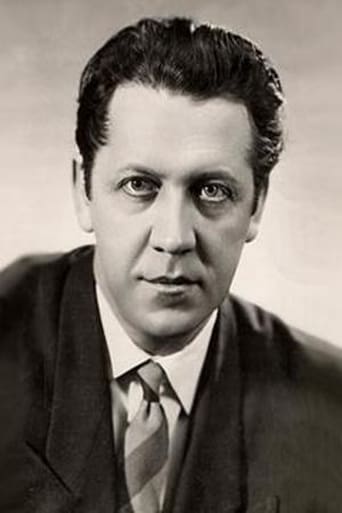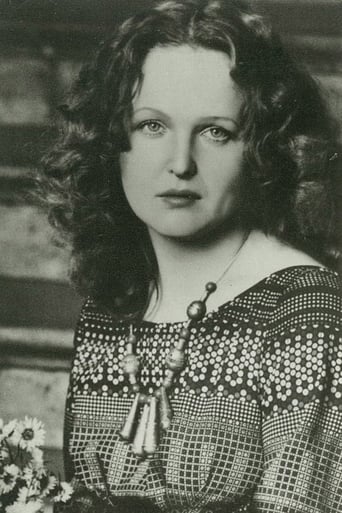Mjeteconer
Just perfect...
Claysaba
Excellent, Without a doubt!!
Comwayon
A Disappointing Continuation
Sienna-Rose Mclaughlin
The movie really just wants to entertain people.
Armand
in many occasions, an adaptation is a war against novel. modifications, lost of book spirit, innovations or only errors. in this case, the masterpiece of Goncharov is key for open the Nikita Michalkov universe. recipes - respect for text, good cast, precise performance, Slav flavor. only is at right place. the drama of poor Oblomov is reconstructed, piece by piece, level by level, with grace, respect and love. more than a film, it may be a portrait or homage. and basic victory is science to transform the story in warm drawing of feelings and expectations, sins and fall. it is not a surprise. only new demonstration of Mikhalkow subtle art. and this is, for each of his films, the sign who makes difference, who gives a kind of aura to every movie and births air of refined melancholia.
edward dardis
According to the Kino DVD, this film won the Cannes Jury Prize upon its release in 1979. Oleg Tabakov brings sensitivity to the title role- we actually feel sympathy for this lovable loser who has lead a rather unproductive life. He has worked in the past, but none of his dreams or goals (if he ever had any) have come to fruition. As the character develops, we discover that this isn't from laziness, but more that he's afraid to take any risks in life. The director, Nikita Mikhalkov, won the Oscar for Best Foreign film in '94 for Burnt By The Sun, but I think Oblomov is actually the better film, with the caveat that it is a little long. The films share a common theme of two men in love with the same woman. And he also returns to E.Artemyev for the musical score of the film (also includes Bellini's "Casta Diva" and music by Rachmaninov).Oblomov and his best friend Stolz are so different in character that the film uses flashbacks to their upbringings to discover why. Stolz's relationship with his father is much more interesting than Oblomov's with his mother, and perhaps some editing here would help. The acting is great throughout, especially Oblomov's relationship with his servant Zakhar. The film has a couple of emotional climaxes, when Oblomov confesses his shame to Stolz in the sauna, and when he confesses his love for Olga on the gazebo. Olga's weeping at the end of the film suggests she has some regrets for past decisions. Oblomov's son running across the fields to visit his mother, well, someone else will have to elucidate that for me.
kdmagnusson
I tried to read Goncharov's novel while in high school after having polished off books by Dostoyevsky, Tolstoy, and others, but Oblomov defeated me in the first few pages. It was just real tough to get into a story about a middle-aged, semi-retired government clerk who doesn't want to get out of bed all day. Now that I am middle-aged myself, I can relate to Oblomov's condition more. I still thought the first part of the movie (of which he actually does spend a good portion in bed) was slow, but after seeing the rest, I regretted never having finished the book. This is one of the greatest movies ever in any language describing what it is like to be depressed - afraid to make decisions and without energy to carry them out, and then what the consequences are of failing to act. With the help of his best friend, Stoltz, and his slogan "now or never" Oblomov manages to get out of his St. Petersburg apartment and begins to rebuild his life. Stoltz even introduces him to a young lady friend, Olga, and (while claiming she is "just a child") tells Oblomov that she and her aunt care take care of him (by keeping Oblomov from crawling back into bed) while he (Stoltz) is off to England. By Part II of the movie, Oblomov has shed 30 pounds and apparently 20 years, and has moved to the country, next door to Olga and her aunt. At this point the movie deals with romantic love from the point of view of a very shy, somewhat older man for a vibrant young woman, and it is this bitter-sweet part that is most moving and interesting. This is one of Nikita Mikhalkov's Soviet-period films, and while it is set is Czarist days and almost fondly lingers on the details of the opulent houses of the upper class, it also slips in several (mostly tongue-in-cheek) comments and observations about the inequality between classes and the uselessness of the aristocracy. For example, Oblomov, from his bed, chides his servant for doing nothing all day long. The cinematography is gorgeous. When Oblomov lazes in the grass among the birch trees, you can almost smell the countryside. This movie is slow to get started, but rewards the viewer's patience greatly by the end. Highly recommended!
mike bloxham
A definitively executed rendering of a work of romanticism; it's depth largely exceeding what can be attained from within a culture, such as the north american, that has either lost its history, or never had one; this to warn it is unlikely to be appreciated by one not already steeped in the film or theater of europe or the slavs. To someone who is, a sweet but not light experience: its lessons and philosophies cannot be contained, but envelope the reader, in his own life.





